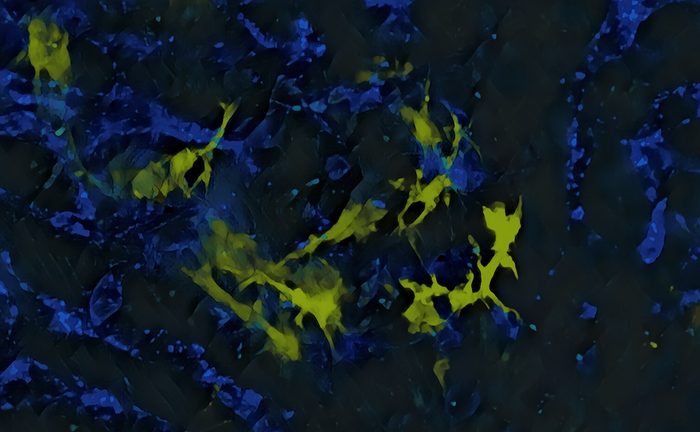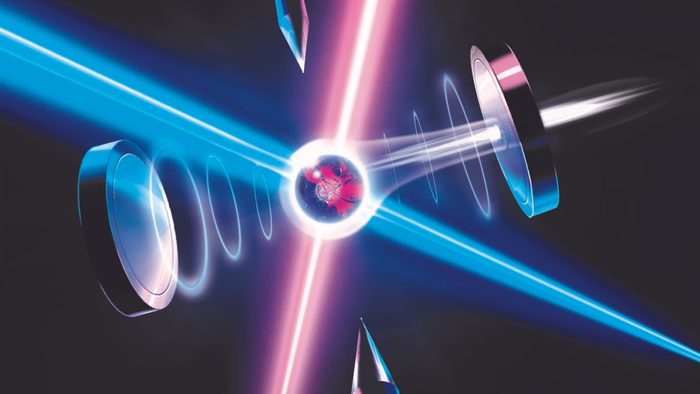Hello, this is Achintya and we are looking ahead to the ITU’s Accelerating Climate Science with AI series that kicks off later today and discovering how powerful new computer algorithms are coming to researchers’ aid.
We also learn how CERN is keeping tabs on its water consumption – most of it pumped from Lake Geneva. And a new discovery by the University of Geneva and Harvard Medical School could help reduce the side effects from cancer treatments. |
|
Science & Technology News
|
|

Clouds of the kind analysed by climate scientists at the University of Oxford using machine learning. Image: NASA
|
|
🌧️ AI has untapped potential for advancing climate science.
Advances in Artificial Intelligence (AI) in the last decade, have equipped climate scientists with new tools for helping to save the planet. Researchers and policy makers are hoping to accelerate this progress through a series of expert talks organised by the International Telecommunication Union (ITU) under the AI for Good programme, starting with a kick-off event later today.
Geneva Solutions (EN)
|
|
Here's what else is happening
|

Image: Mikaël Pittet / UNIGE
|
|
🔬 No immunotherapy side effects?
Scientists from the University of Geneva and the Harvard Medical School have identified the mechanism by which immunotherapies cause toxicities. This could eventually lead to reduced side effects from cancer treatments. This image shows, in yellow, the liver macrophages that secrete a protein that causes the negative effects of immunotherapy; the blood cells are shown in blue.
UNIGE (EN)
|
|

Image: Julien Ordan / CERN
|
|
🚰 That’s the equivalent of 1400 Olympic-sized swimming pools.
CERN’s water consumption has decreased by 77 per cent in nearly two decades, going down from 15 million cubic metres in 2000 to about 3.5 million cubic metres in 2018. In a note published this week, the world’s biggest particle physics laboratory also explains how it uses water pumped from Lake Geneva to cool down its huge labyrinth of accelerators.
CERN (EN)
|
|
|
Anticipatory reads by GESDA
|
|

Image: ESA
|
|
Space is the next “battlefield”,
in many areas going from access to the moon to using space ressources, launching low-Earth orbit constellations of communication satellites, and to expanding space tourism activities.
Add into the picture new technologies that are coming to the market, based on quantum physics, famous for being very powerful and unhackable.
Now mix the two research and technology dimensions, and you bring yourself to the leading rows. That is what Europe is wishing to do: “In space, there are four main areas of quantum applications: satellite-based quantum encryption (which includes Quantum Key Distribution), space-based Time and Frequency Transfer infrastructure (TFT), Earth-sensing and observation using atomic interferometry and finally fundamental sciences. [...] Quantum technologies have the potential to lead to a paradigm shift for secured communication standards and their development is now considered a strategic priority for Europe’s digital autonomy and sovereignty,” according to a report by the European Space Policy Institute (read article below).
Switzerland has a long tradition of leading research in quantum physics, among others at the University of Geneva. And the country is now also developing its space activities, mainly in space services. It is therefore of even greater importance for its scientific community to be able to take part in this double continental scientific effort – beyond the current political hurdles.
– Olivier Dessibourg, GESDA
|

This selection is proposed by the Geneva Science and Diplomacy Anticipator
GESDA, working on
anticipating cutting-edge science and technological advances to develop innovative and inclusive
solutions for the
benefit of the planet and its inhabitants.
|
|
📌 9 July | Shaping resilient societies: can one succeed?
The panel discussion will address the current Covid-19 crisis and how to brace for future shocks. Leading experts will reflect on data ecosystems as tools for evidence-based decision making and on compounding effects of global dynamics of change, demographic shifts, urbanisation and growing inequalities.
UNIGE (EN)
|
|
|
GS news is a new media project covering the world of international cooperation and development. Don’t hesitate to forward our newsletter!
Have a good day!
|

|
|
Avenue du Bouchet 2
1209 Genève
Suisse
|
|
|
| |












